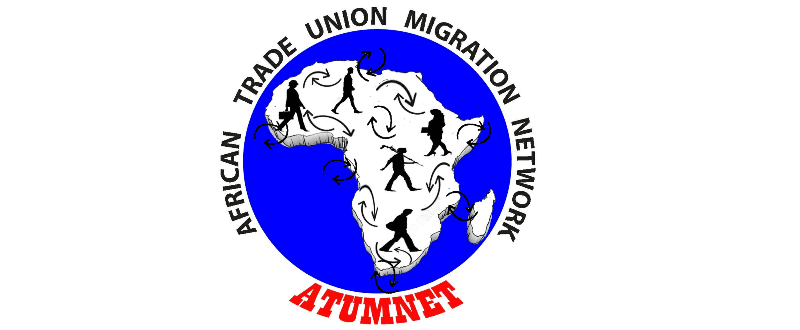By Rita Esegine , Abuja
With issues concerning labour migration and challenges faced by migrants dominating many discuss of stakeholders around the world, Trade Unions in Africa under the umbrella of the African Trade Union Migration Network (ATUMNET) will in early December converge on Dakar, the Capital of Senegal to discuss new strategies as well as strengthen existing ones in a bid to improve labour migration governance amidst the Covid-19.
The meeting is part of ATUMNET’s continuous bid to build the capacity of trade union organisations in Africa on better engagement skills around labour migration.
African trade unions have been at the forefront of mobilizing and speaking for labour migrants whose vulnerable situations have now been made worse due to the pandemic.
According to a statement by ATUMNET Secretariat, the two-day meeting will recalibrate African trade unions’ migration governance engagement in more focused and direct ways that will make them real and effective voices and champions for labour migration governance in Africa.
According to ATUMNET, COVID-19 adversely affected migrant workers in several and hard ways, which includes losses of jobs and incomes; exposure to infection without or limited personal protection equipment; stranded and locked away from families and loved ones during the various lockdowns imposed, as well as being unable to renew expired visas and other work and travel documents.
The meeting which has the theme, ” Migration in the times of COVID-19: African Trade Unions re-strategizing to be more effective” will therefore allow members of the ATUMNET to gain new information, skills, and knowledge necessary for advancing their engagements.
The meeting will enable ATUMNET members to undertake stocktaking and review of the implementation of the ATUMNET 2019-2021 Action Plan as well as to develop and adopt ATUMNET 2022-2024 Action plan.
It explained that African trade unions have been active in different ways making tangible contributions to the implementation of various GCM Objectives, adding that the Dakar meeting will enable better understanding and engagement strategy around the selected GCM Objectives, SDG Goal 8.
Speaking on why the trade unions are considering rejigging their strategies, comrade Akhator Joel Odigie, Deputy General Secretary of the ITUC-Africa pointed out that COVID-19 has meant trade unions need to engage in sharper and imaginative ways if they are to make tangible and effective contributions to labour migration governance. He also opined that specialisation in the areas of engagement is helping. By this, he was emphasizing the fact that the African trade unions want to focus attention on labour migration and the need for organised labour to have an authoritative voice on labour issues related to migration.
Further, he hinted that African trade unions will be doing more to build a robust and effective alliance with other Non-State Actors across borders. This is why this meeting will be having more Civil Society Organisations(CSOs) participation. “We shall also be having participants from allies in Asia and migrant workers themselves”.
Further, he hinted that COVID-19 affected women differently and more adversely compared to men. This is why our meeting will also focus on how to improve protection for female migrant workers. We shall be seeking this solution by working with the women themselves.
Finally, comrade Akhator Odigie alluded to the strategy to improve working relationships with the UN Migration Network. This is why this meeting will be inviting and utilising the technical support of the organisations that make up this network and those assisting in the implementation of the Joint Labour Migration Provramme (JLMP). Already, we are seeing a steady increase in the role and efficiency of the African Union made possible in part by the willingness to genuinely embrace the whole-of-stakeholders and whole-of-society approaches. Trade unions want to plan better in how to engage State Actors and Development Institutions.
End.






























